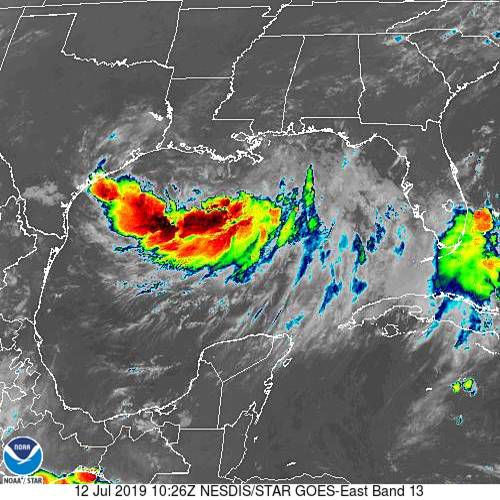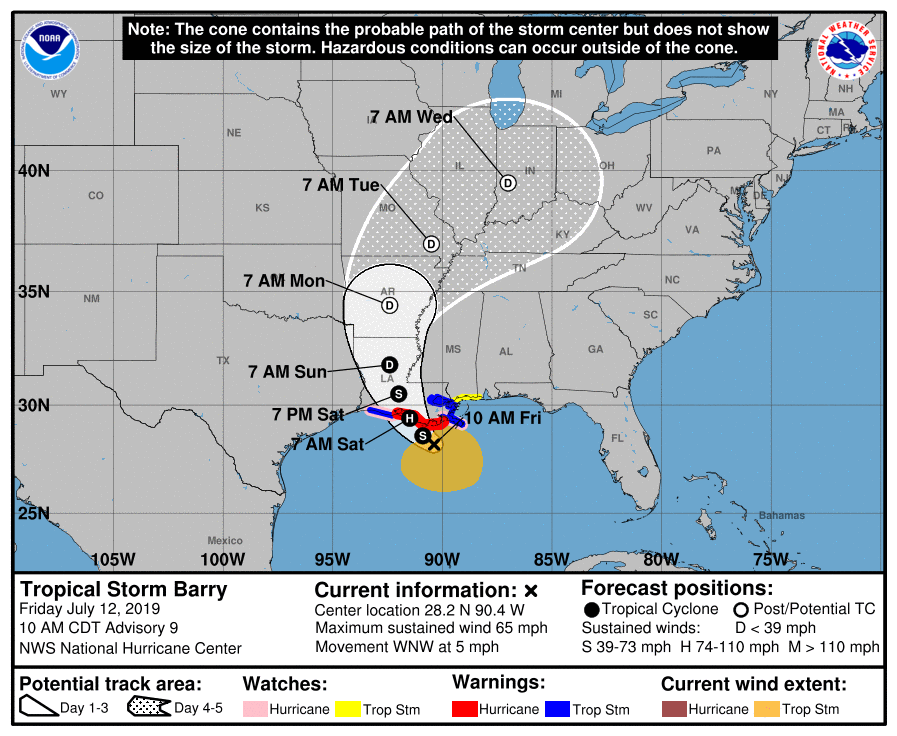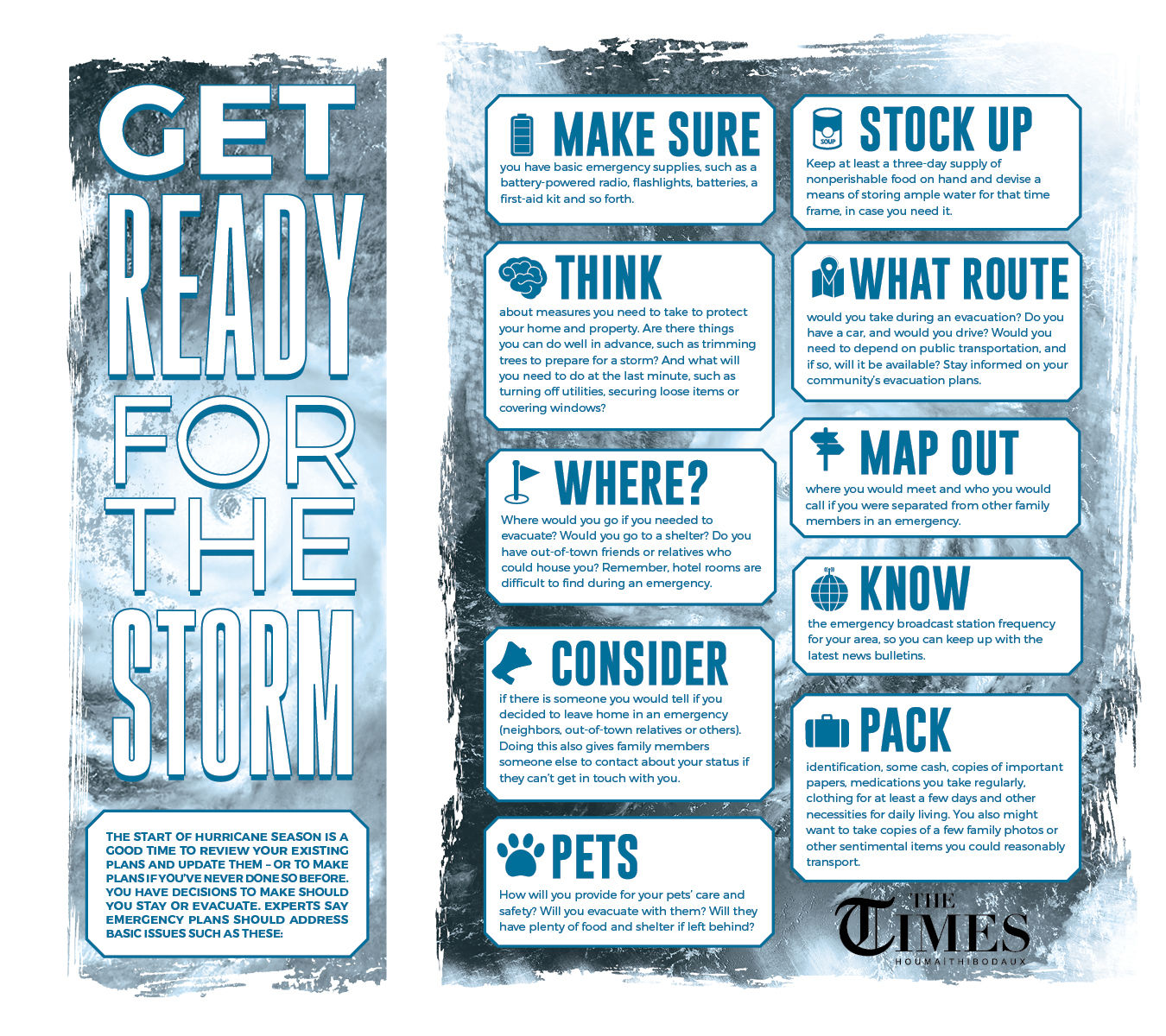
TPSO sets curfew tonight as Barry nears
July 12, 2019
Terrebonne Government joins other local agencies to give generator safety tips with Barry just offshore
July 12, 2019As Tropical Storm Barry approaches our area, it’s important to remain calm and be prepared.
Here are a few important tips and reminders from the Terrebonne Parish Office of Homeland Security and Emergency Preparedness.
When your area receives a hurricane warning:
1. Keep your radio, television or NOAA weather radio on and listen for the lastest Weather Service advisories, as well as special instructions from your local government. Also listen for tornado watches and warnings. Tornadoes spawned by a hurricane are among the storm’s worst killers.
2. Plan your time before the storm arrives and avoid the last-minute hurry that might leave you marooned or unprepared.
3. Leave low-lying areas that might be swept by high tides, storm waves or storm surge.
4. Leave manufactured homes for more substantial shelter. Unless properly anchored, manufactured homes are particularly vulnerable to overturning during strong winds.
5. Moor your boat securely before the storm arrives or move it to a designated safe area. When your boat is moored, leave it and don’t return until the storm has passed your area.
6. Board up windows or protect them with storm shutters or tape. Danger to small windows is mainly from wind-driven debris. Large windows may be broken by wind pressure.
7. Secure outdoor objects that might be blown away. Garbage cans, garden tools, toys, signs, porch furniture and a number of other harmless items become missiles of destruction in hurricane winds. Anchor them or store them inside before the storm strikes.
8. Store drinking water in clean bathtubs, jugs, bottles and cooking utensils. The parish’s water system may be contaminated or damaged by the storm. Stay tuned to area newscast, to see if you may need to boil water before use.
9. Check your battery-powered equipment. Your radio may be your only link with the world outside of the hurricane. Emergency cooking facilities and flashlights will be essential if utility services are interrupted.
10. Keep your car fueled. Service stations may be inoperable for several days after the storm strikes because of flooding or interrupted electrical power.
11. Stay at home if it is sturdy and on high ground. If not–and especially if local authorities order an evacuation of your area–move to a designated shelter and stay there until the storm is over.
12. Remain indoors during the hurricane. Travel is extremely dangerous when winds and tides are whipping through your area. Don’t be fooled by the “eye” of the hurricane. If the storm center passes directly overhead, there will be a lull in the wind lasting from a few minutes to half an hour or more. Stay in a safe place unless emergency repairs are absolutely necessary. Remember that at the other side of the “eye” the winds will increase rapidly to hurricane force and will come from the opposite direction.
After the Storm:
1. Remain in shelter until informed by local authorities that it is safe to leave.
2. Keep tuned to your local radio or television station or the Terrebonne Parish Consolidated Government website at www.tpcg.org for advice and instructions from your local government on:
• Where to go to obtain necessary medical care in your area.
• Where to go for necessary emergency assistance for housing, clothing and food.
• Ways to help yourself and your community recover from the emergency.
3. Stay out of disaster areas. Sightseeing interferes with essential rescue and recovery work and may be dangerous as well.
4. Drive carefully along debris-filled streets. Roads may be undermined and may collapse under the weight of an automobile.
5. Avoid loose or dangling wires and report them immediately to your power company, the Terrebonne Parish Office of Homeland Security and Emergency Preparedness at (985) 873-6357, or the local police or fire department.
6. Report broken sewer or water mains to the Terrebonne Parish Office of Homeland Security and Emergency Preparedness at (985) 873-6357.
7. Prevent fires. Lowered water pressure may make fire fighting difficult.
8. Check refrigerated food for spoilage if power has been off during the storm. TIP: Before evacuating, place all freezer and refrigerator items in plastic bags and place back into freezer or refrigerator. If the food spoils, just throw away the plastic bags.











